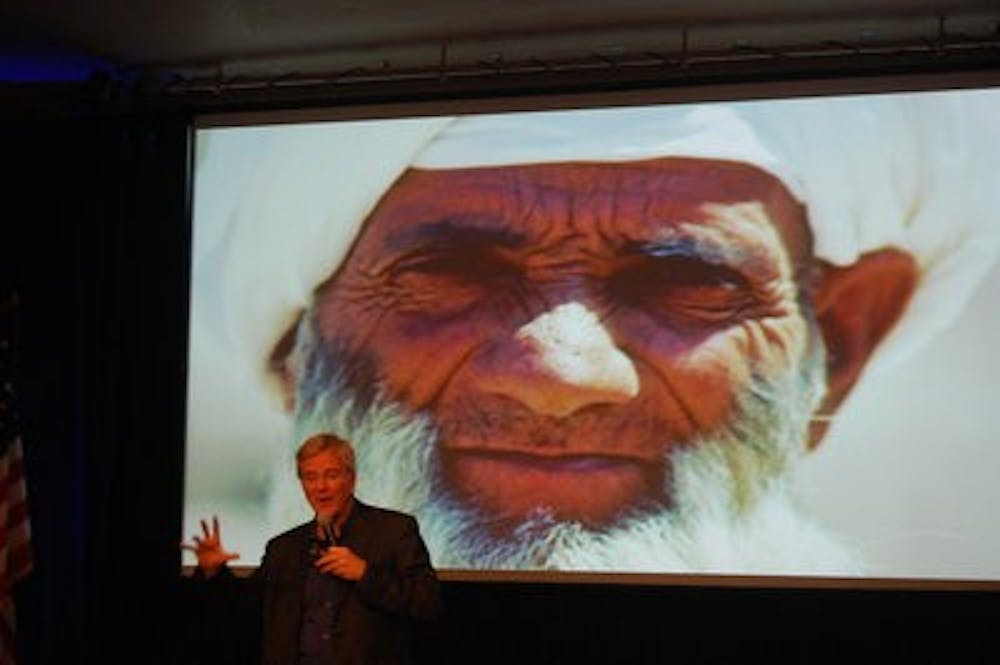Rick Steves is well-known for definitive itineraries, more than a 50 travel books, hundreds of travel-centric television episodes and thoughtful travel plans, but his biggest piece of advice Wednesday afternoon was to leave something at home.
"There's a lot of fear in travel today," Steves said. "It isn't dangerous to travel, it's dangerous to stay at home."
Steves discussed ideas related to his book 'Travel as a Political Act,' to a rapt and large audience at the auditorium of The Hotel at Auburn University and Dixon Conference Center.
Throughout his speech Steves dismissed the idea of having fears about travel.
"We have 9-11 baggage," Steves said. "It used to be have a good trip, and now it's have a safe trip."
He also urged against worrying about other countries harboring a dislike for Americans.
"They're not anti-American," Steves said. "They're anti-American trade policy and perceived American imperialism."
Steves said that the incredibly warm reception he received in Tehran, Iran is proof of this.
Steves said despite fear, economic conditions and the ability of electronics to provide escape that travel is doing as well as ever.
"This year I've sold the most travel books that I ever have by far," Steves said. "Just because there is pornography available on the internet, do you think there are less people making love?"
Steves also suggested keeping an open mind, maintaining curiosity and tolerance as important qualities for successful traveling.
Steves called these cultural differences silly little misconceptions, and he downplayed their importance.
"The French are evangelical about cheese," Steves said. "Don't be put off by that."
Steves said that looking past small differences such as cheese-appreciation is crucial, but that it's also important to consider more radical changes in perspective as well.
"All we do is teach people to make money," Steves said. "That's a pathetic society."
Instead of money Steves praised ideals that value a well-rounded nature and appreciate history as it happens.
The lecture seemed genuinely enjoyed by all, and it was met with a standing ovation.
"I thought it was very enlightening," said Jordan Wampler, junior in English literature.
Wampler said he was there, because of his interest in travel, and because he is currently enrolled in a travel writing class.
The speech lasted almost an hour and a half, and it was followed by a question and answer session.
Wampler said he was most surprised by Steves' success with travel despite Steves' admitted inability to learn local languages.
Afterward, Steves signed autographs as people snapped photos outside of the auditorium.
This seemed to reaffirm Steves' earlier claim that human contact is his favorite part of travel.
"I want people to people," Steves said. "That's what distinguishes a good trip."
He said that personal contact in travel lets people grow and take away new insights.
"As travelers we can go out there, where it seems scary and make connections." Steves said.
Do you like this story? The Plainsman doesn't accept money from tuition or student fees, and we don't charge a subscription fee. But you can donate to support The Plainsman.





